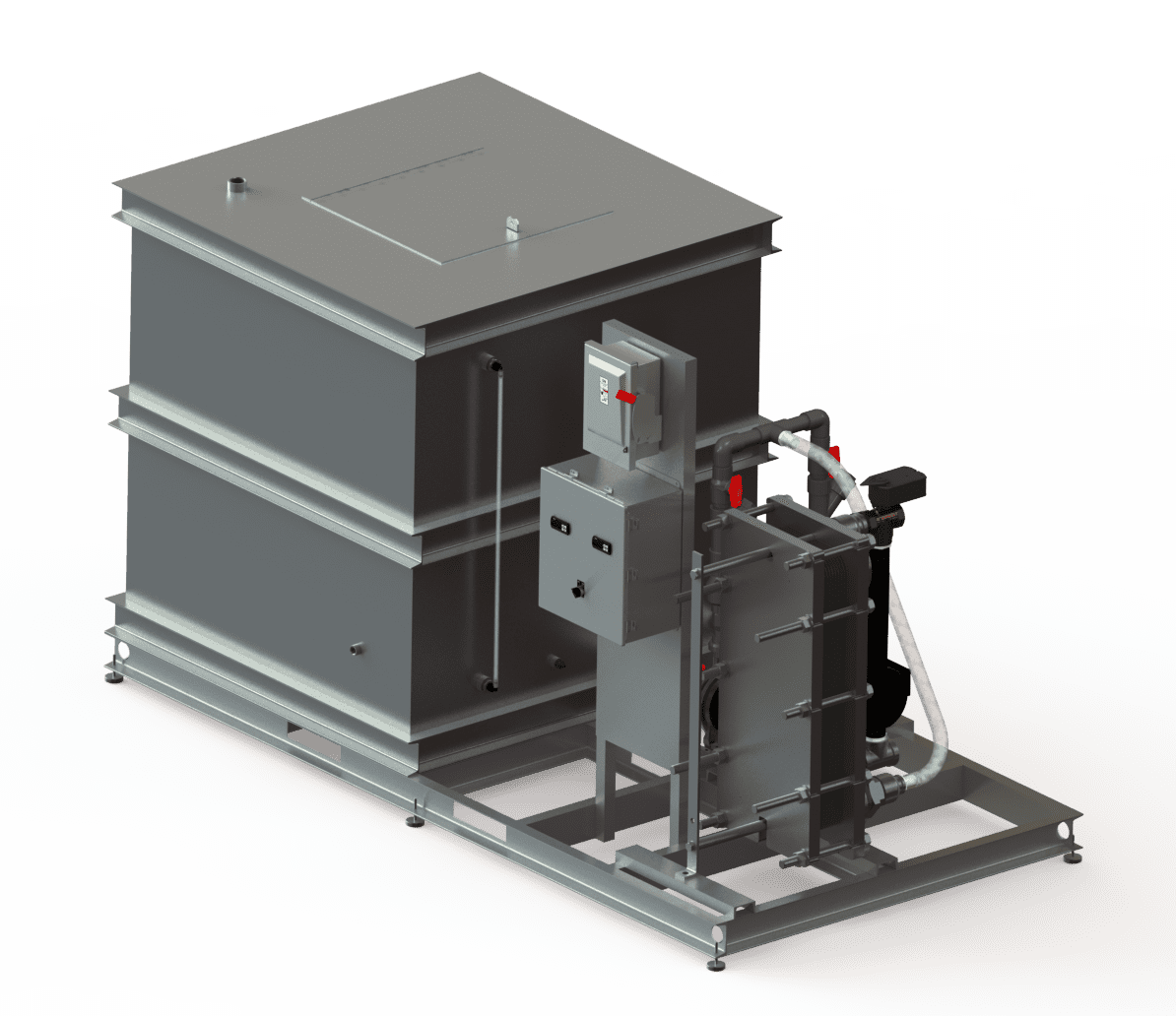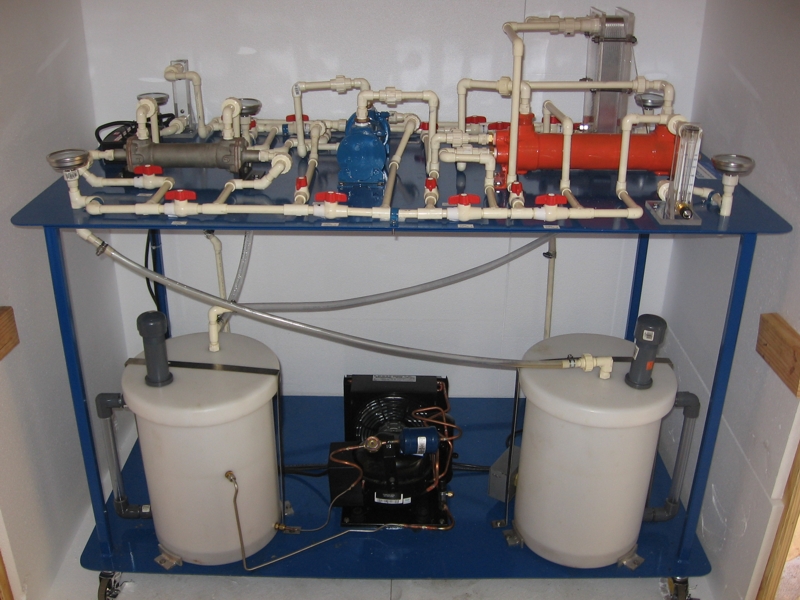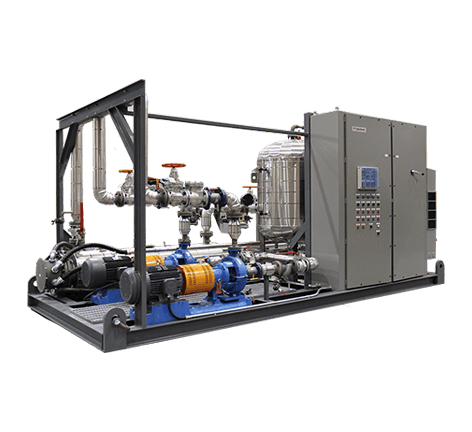The Duty of Heat Transfer Solutions in Sustainable Power Solutions for the Future
Heat transfer systems are necessary in the mission for sustainable energy services. They enhance thermal energy administration, enhancing the efficiency of eco-friendly technologies. By using mechanisms like convection, radiation, and transmission, these systems decrease energy losses. Their function in solar thermal and geothermal applications is especially significant. As technologies emerge, the possibility for further advancements elevates vital questions about future energy techniques. What growths will shape the landscape of lasting power?
Comprehending Heat Transfer Systems

The Importance of Thermal Power Administration
Reliable thermal power monitoring is crucial for optimizing power efficiency and lessening waste in different systems. By managing temperature level and maximizing Heat transfer processes, companies can noticeably reduce energy intake and functional expenses. Effective monitoring involves the application of innovative technologies and methods that check and manage thermal problems within systems, ensuring that energy resources are used effectively. On top of that, appropriate thermal power monitoring adds to decreasing greenhouse gas emissions, aligning with international sustainability goals. It likewise boosts system integrity and performance, causing enhanced item high quality and longer tools lifespan. Eventually, focusing on thermal power monitoring is an essential action in the direction of developing much more lasting power remedies and cultivating a liable strategy to energy usage in industrial and domestic contexts.
Applications of Heat Transfer in Renewable Resource
While numerous renewable power sources guarantee sustainability, the reliable application of Heat transfer plays an important duty in their effectiveness. In wind power systems, Heat transfer is made use of for turbine element cooling, improving efficiency and longevity. Geothermal power depends on efficient Heat exchange between the planet's subsurface and the liquid flowing in the system, making best use of power removal. Biomass energy procedures likewise gain from Heat transfer, as it aids in transforming natural materials right into usable fuel via pyrolysis and gasification. Additionally, in hydropower, keeping perfect temperature levels in tanks can improve power outcome. Each of these applications demonstrates the crucial significance of Heat transfer systems in improving renewable power modern technologies, eventually adding to an extra lasting power future.
Enhancing Solar Thermal Power Efficiency
As solar thermal power systems continue to evolve, improving their efficiency has actually ended up being vital for making the most of energy result. Advances in Heat transfer innovations, such as enhanced thermal storage materials and ingenious Heat exchangers, play a considerable role in improving performance. By using sophisticated products that have superior thermal conductivity, systems can move and capture Heat more properly. Additionally, integrating radar that follow the sun's course guarantees that collection agencies obtain optimal solar direct exposure throughout the day. Utilizing nanotechnology in solar absorbers can even more raise energy absorption rates. Additionally, including computerized control systems helps control temperatures and handle power circulation efficiently, causing lowered losses and boosted general system effectiveness. These improvements lead the way for even more lasting solar thermal energy remedies in the future.
Geothermal Home Heating: A Sustainable Service
Geothermal home heating provides a feasible alternative for lasting power, supplying considerable environmental benefits through lowered greenhouse gas discharges. Its efficiency and cost-effectiveness make it an appealing option to conventional furnace. Nevertheless, difficulties associated with implementation must be dealt with to optimize its possible effect.
Environmental Benefits of Geothermal
Although traditional heating methods add substantially to greenhouse gas discharges, geothermal heating offers a compelling choice that decreases environmental influence. By taking advantage of the Earth's interior Heat, geothermal systems utilize a renewable resource source, substantially decreasing dependence on fossil fuels. This method produces very little carbon discharges, making it a cleaner option for household and business heating. Additionally, geothermal systems promote power efficiency, as they call for much less energy contrasted to standard heater. DVS Heat Transfer Systems. The use of geothermal energy likewise helps in reducing air pollution, enhancing regional air high quality and public wellness. As a lasting option, geothermal heating supports climate modification reduction efforts, positioning itself as an important element in the shift in the direction of a greener future
Performance and Cost-Effectiveness
Exactly how does geothermal heating determine up in regards to performance and cost-effectiveness compared to conventional heating systems? Geothermal heating demonstrates superior efficiency, typically attaining a coefficient of efficiency (POLICE OFFICER) of 3 to 5, indicating it generates 3 to 5 units of Heat for every unit of electricity consumed. This performance equates right into lower operating expenses, especially in areas with secure geothermal sources. Initial installation prices can be higher than standard systems; however, lasting financial savings on power costs and lowered upkeep expenditures can counter these upfront investments. Additionally, lots of federal governments incentivize geothermal systems through rebates and tax obligation credit ratings, enhancing their cost-effectiveness. On the whole, geothermal heating emerges as a economically feasible and sustainable alternative to more traditional home heating services.
Implementation Difficulties and Solutions
Numerous difficulties can hinder the widespread execution of geothermal heating systems, in spite of their clear benefits as a sustainable energy remedy. High first setup expenses often hinder investors and house owners, making financing a substantial obstacle. In addition, the geographical constraints of ideal geothermal websites limit access in certain regions. Neighborhood regulations and permitting procedures can additionally complicate project growth, bring about hold-ups. Public awareness and understanding of geothermal systems remain reduced, hindering approval. To resolve these difficulties, targeted education and learning projects can boost open secret, while government rewards can minimize monetary worries. Teaming up with local authorities to enhance laws may promote smoother job approvals, inevitably advertising the fostering of geothermal home heating as a practical, sustainable energy option.
Developments in Heat Transfer Technologies
Advancements in Heat transfer innovations play a crucial duty in improving power performance and sustainability. Advanced Heat exchangers and phase adjustment products are at the leading edge of these advancements, using considerable enhancements in thermal administration. These innovations not only optimize energy use however likewise contribute to decreasing environmental impact in numerous applications.
Advanced Heat Exchangers
Advanced Heat exchangers play an essential duty in improving energy efficiency throughout numerous applications in lasting power services. These devices promote the transfer of Heat in between 2 or more fluids, noticeably minimizing energy intake in processes such as commercial home heating, cooling, and power generation. Innovations in products and layout, such as the use of nanofluids and portable setups, have resulted in improved thermal efficiency and reduced size requirements. In addition, developments in electronic tracking and control systems permit optimized procedure, more boosting efficiency. By decreasing waste Heat and taking full advantage of power recovery, advanced Heat exchangers add to decrease carbon footprints and support the change toward eco-friendly technologies. Their proceeded development is important for achieving international energy sustainability objectives.
Stage Change Materials
The combination of phase change materials (PCMs) into Heat transfer technologies represents a considerable innovation in power administration and performance. PCMs absorb and launch thermal power throughout their phase adjustments, allowing effective temperature regulation in structure click here for info products and power systems. By keeping excess Heat during optimal durations and releasing it when need boosts, PCMs add to load changing and energy preservation - DVS Heat Transfer Systems. This capability boosts the performance of renewable additional hints resource systems, particularly in solar thermal applications. In addition, PCMs can improve the thermal comfort of interior environments, decreasing reliance on conventional heating and cooling techniques. As advancements in PCM formulations remain to arise, their function in lasting power solutions is positioned to grow, using encouraging methods for future research and application

Future Leads for Heat Transfer in Lasting Power
As the need for sustainable energy remedies remains to climb, the function of Heat transfer systems is ending up being significantly important in shaping future technologies. Technologies in products and designs are expected to improve effectiveness in Heat transfer, lowering energy losses in different applications. The integration of advanced thermal storage space systems, such as stage modification materials and thermochemical storage, will enable much better administration of power sources. Research into nanofluids and biomimetic Heat exchangers may further maximize thermal performance. The adoption of smart technologies will certainly enable for real-time surveillance and adaptive control of Heat transfer procedures. These developments are poised to considerably add to the total performance and sustainability of power systems, leading the way for a much more energy-efficient future.
Frequently Asked Questions
How Can People Implement Heat Transfer Solution in your home?

Individuals can apply Heat transfer systems in the house by mounting energy-efficient home appliances, making use of glowing home heating, and maximizing insulation. These procedures enhance power effectiveness, decrease expenses, and promote sustainable practices in domestic settings.

What Are the Prices Linked With Setting Up Heat Transfer Solutions?
The costs connected with setting up Heat transfer systems differ commonly, usually incorporating tools, installation labor, and maintenance. Elements such as system kind, home size, and regional laws substantially influence the general expense entailed.
Are There Federal Government Rewards for Heat Transfer System Installations?
Government incentives for Heat transfer system setups vary by area and can include tax obligation credit reports, grants, and refunds. These economic advantages aim to motivate fostering, ultimately advertising power performance and minimizing ecological impact within neighborhoods.
Exactly How Do Heat Transfer Equipments Impact Energy Costs?
Heat transfer systems significantly affect energy costs by maximizing power efficiency. By boosting the transfer of Heat, these systems decrease energy intake, resulting in reduced utility costs and developing a much more lasting approach to energy administration.
What Maintenance Is Required for Heat Transfer Solutions?
Upkeep for Heat transfer systems consists of normal examinations, cleansing of parts, checking fluid levels, making sure appropriate insulation, and replacing worn parts. These tasks aid preserve effectiveness, protect against failures, and prolong the this page system's functional life-span.
These systems facilitate the activity of thermal energy from one medium to another, making it possible for the transfer of Heat for energy, heating, or cooling generation functions. Geothermal power depends on reliable Heat exchange between the planet's subsurface and the liquid flowing in the system, making best use of power removal. In addition, geothermal systems advertise energy effectiveness, as they require much less energy contrasted to traditional heating systems. Advanced Heat exchangers play a crucial duty in enhancing energy effectiveness across various applications in sustainable energy solutions. Heat transfer systems especially affect power expenses by maximizing power performance.